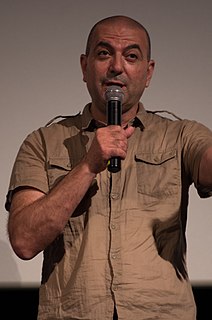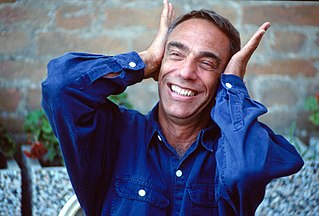A Quote by Yann Martel
The language of prose is very different than the language of cinema, so the movie has to successfully translate what was in the book.
Related Quotes
Politics is different than movies. Politics are controlled by leaders. Leaders of every country have different interests. And they try to explain to their people why they should take one side or the other side. But in the movie its doing the opposite. It allows you to have a Universal Experience. You don't watch it as politics but as a movie. You don't have different reactions all over. It's so universal a language. It's not a political language serving a political agenda. The language of cinema is a world language. With the Hollywood movie, it brings about the same reaction wherever it goes.
An American customer can book in English all over the world, but also, somebody from Japan or China can book in their own language everywhere. We translate all of our content into these languages, and that's quite unique. We service our direct customers - the innkeepers - as well in their own language.
We're living in a time when the sheer amount of language has exponentially increased. As writers, if we wish to be contemporary, I think we need to acknowledge that the very nature of the materials that we're working with - the landscape of language - is very different than it was a few decades ago.
The advantage of the gypsy language, even though I don't understand it that much, the language is perfect melody. So if you propose the movie the way I do, then the language is just one part of the melody. Orchestrating all inside, and the language is following the meaning of what they say, and it's never the same as written.
We believe we can also show that words do not have exactly the same psychic "weight" depending on whether they belong to the language of reverie or to the language of daylight life-to rested language or language under surveillance-to the language of natural poetry or to the language hammered out by authoritarian prosodies.
There is something false in this search for a purely feminine writing style. Language, such as it is, is inherited from a masculine society, and it contains many male prejudices. We must rid language of all that. Still, a language is not something created artificially; the proletariat can't use a different language from the bourgeoisie, even if they use it differently, even if from time to time they invent something, technical words or even a kind of worker's slang, which can be very beautiful and very rich. Women can do that as well, enrich their language, clean it up.


































